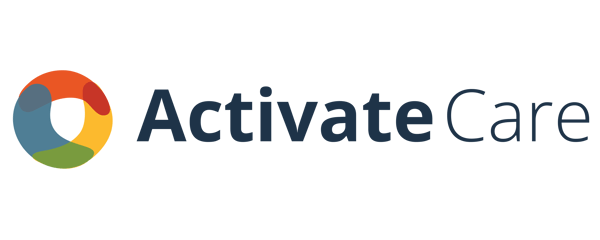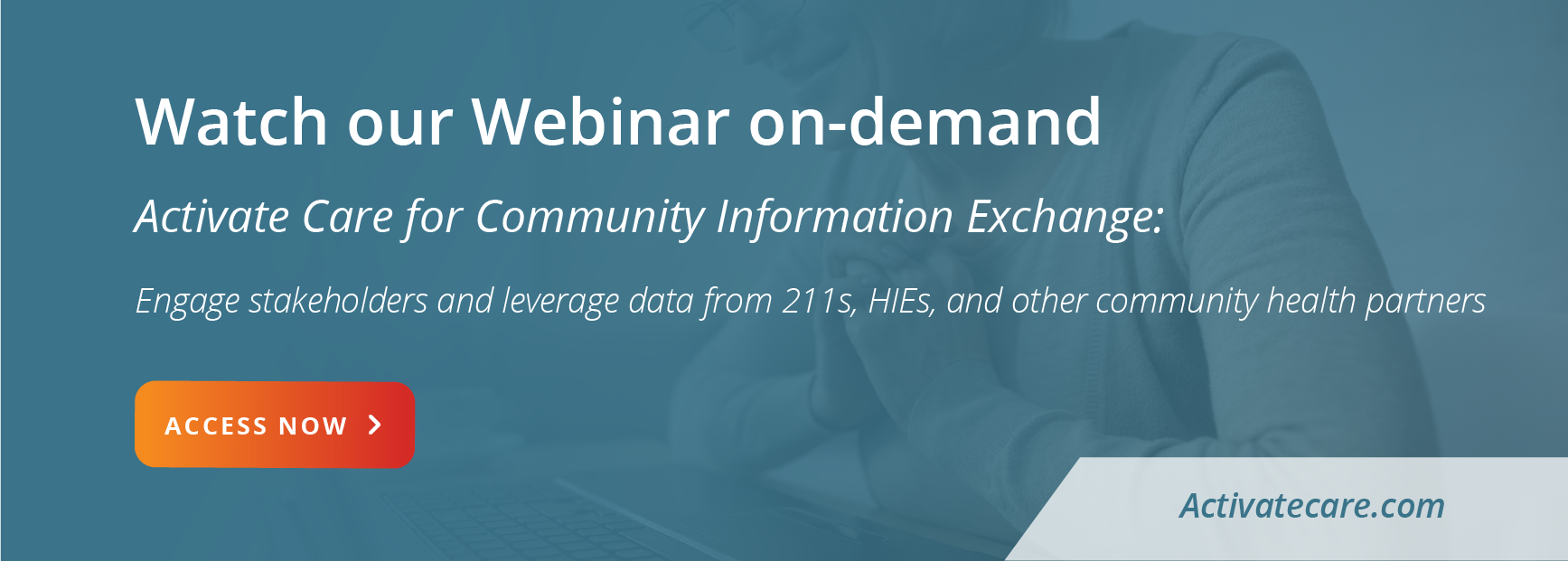Our collective understanding of the social determinants of health (SDOH) continues to make headway. We now recognize SDOH as vitally important components of health and...
The Importance of Open Data Exchange Standards
Imagine if our healthcare and social service systems were able to seamlessly coordinate care around all of our physical, behavioral, and social health needs. Back in 2012, inspired by this vision, I joined a technology start-up that is now known as Activate Care.
I am joined now by a much larger team of colleagues supporting our pursuit of that vision. We’re honored to work with a community of hundreds of healthcare and social services organizations who use our platform.
From day one, we built Activate Care to actively break barriers between siloed health organizations for the kind of communication and collaboration that people need for effective care. In fact, our team has deep experience in establishing collaboration standards to do just that:
- Guardian Angel: The very idea that patients have a right to access their digital medical data emerged from co-founder Dr. Isaac Kohane's Guardian Angel project in 1994.
- SMART: Our co-founder, Dr. Kenneth Mandl, developed the SMART Framework for embedding diverse health applications within electronic medical records, which became a national standard through the 21st Century Cures Act in December 2016.
- Indivo: Working with Drs. Kohane and Mandl, I was excited to serve as a contributor to the open-source Indivo Personally-Controlled Health Record data model which was adopted by Google Health (2006) and Microsoft HealthVault (2007).
In each phase of our platform's growth, we've looked to open standards as guides for how to architect our data model. Adopting open standards makes good technological sense – we can integrate with compatible partners in record time – but it also helps us be good citizens in the health data community.
We recognize that we can only solve America's health collaboration challenges with a diverse network of technologies: Activate Care is one platform among many which need to work together at the user-interface and data levels. (In fact, our co-founders authored a high-impact piece in the New England Journal of Medicine about that very fact.)
Our commitment to data standards in the social referrals space is no different:
- Open Referral: Our earliest referral directory prototypes were designed with the Open Referral standard, formed in 2014 by our advisor Greg Bloom.
- HSDS: Our referral directory data model is fully compatible with Open Referral's Human Services Data Specification (HSDS), allowing us to swap out our directory data with other compliant data sources when our partners require it.
- Open Eligibility & AIRS: Our social needs architecture supports both the Open Eligibility and AIRS taxonomies, which drives our needs assessment interface and social program search.
How You Can Help Advance the State of Integrated Care
We have been advancing the state of the art in community-based care coordination for years. But we need your help to achieve our vision of a more equitable society where all communities can seamlessly and proactively coordinate care around all of our physical, behavioral, and social needs.


